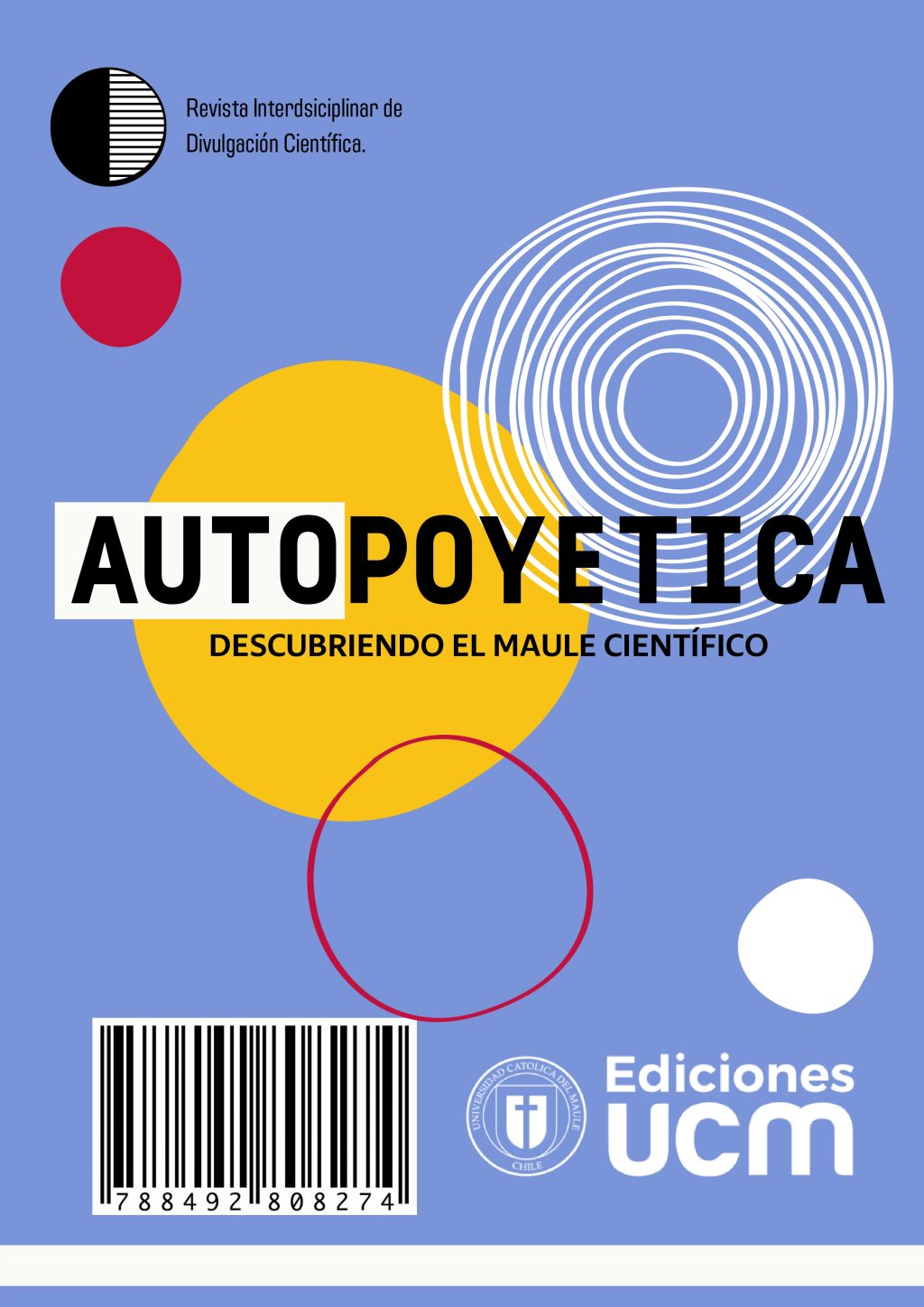(magazine cover design)
The publication, whose title is inspired by a concept developed by biologists Humberto Maturana and Francisco Varela, will be funded through a “General Science” competition.
A scientific journal aimed primarily at a youth audience, it will be launched by the Faculty of Basic Sciences (FCB) of the Catholic University of Maule (UCM), after receiving funding from the Ministry of Science, Technology, Knowledge and Innovation.
The public science advocacy has benefited 47 projects nationwide.
“The idea is to build an interdisciplinary journal, with an attractive format. The project is in the hands of an interdisciplinary team from the Faculty of Basic Sciences, which will publish scientific work from the model of interdisciplinary interaction,” announced the initiative’s director and campus academic, Sandra Araya Crisostomo.
The journal will be called “Autopoietic”, a concept developed by biologists Humberto Maturana and Francisco Varela, at the beginning of the 1970s, to explain the organization of organisms as self-producing systems.
“For us it was important to pay tribute to these two great Chilean scientists through the name of the magazine,” Araya added.
The first issue of “Autopoietic” will be ready in March 2024 and will contain both a digital and a print version. The paper publication, consisting of a thousand copies of 30 to 35 pages, will be distributed in the Liceo de la Cultura y Difusión Artística and the Liceo Bicentenario Santa Marta, both in Talca, without excluding its distribution in other educational institutions.
Sections
The project, titled “An Autopoietic Interdisciplinary Journal: Scientific Molar Discovery,” will last fifteen months, beginning with pre-production.
The team will collect content and prepare for the different sections, including Women in Science, Interdisciplinary Problems, Interviews with Scientists and Recommendations for Scientific Books. There will also be space for student centers for the college and one for school research by students of our associated schools,” the Biology Professor and Masters in Experimental Science Education also said.
Advocacy – he added – that they can be motivated to participate in this case. It’s important for researchers to connect with the community and for residents to know what they’re doing, because our young people know very little about what’s going on in science in the area.”
The “Autopoyética” editorial team will also consist of academics from the Faculty of Basic Sciences Patricia Barahona, Nelson Velasquez, Rodrigo del Valle, Juan Luis Guevara and Carlos Paiva.

“Social media evangelist. Student. Reader. Troublemaker. Typical introvert.”

:quality(85)/cloudfront-us-east-1.images.arcpublishing.com/infobae/TEQF6EONZRFGLLLDIDD4L2O4EE.jpg)

:quality(75)/cloudfront-us-east-1.images.arcpublishing.com/elcomercio/XU32LRAEZFDDPNVHLFU3CKVBYY.jpg)



More Stories
Venezuela ranks fourth in female leadership in science and technology in Latin America
In Portuguesa and Sucre they explore the wonderful world of science
The university court overturns the expulsion of two teachers and a chemical sciences student